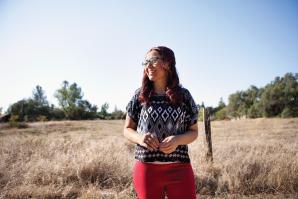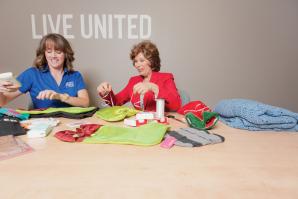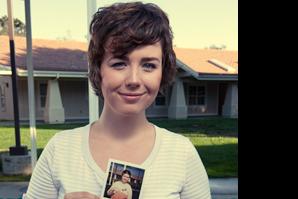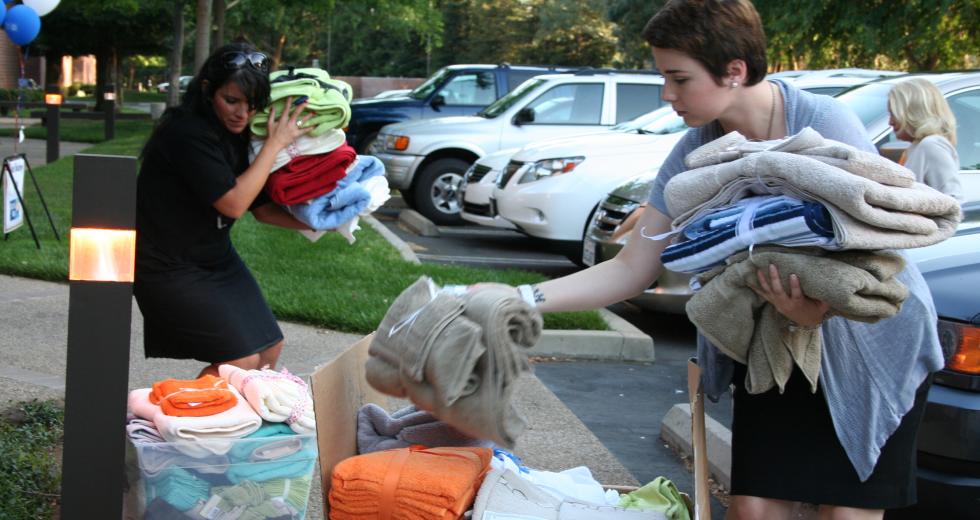When Paige Gallagher first met workshop speaker Wonderful Davidson, she thought she was, well … wonderful.
“She gave me hope,” says the foster youth who lives at Koinonia Homes for Teens, a Loomis-based residential treatment program of Koinonia Family Services that works with foster children across California.
Davidson, a volunteer with United Way’s Women in Philanthropy, was invited to Koinonia to teach a course on self-confidence, which resonated with Gallagher and gave her the encouragement she needed to focus on her education and her future. The 17-year-old is set to graduate this year and has set her sights on college and a career in counseling.
“I would like to give back to my community, and I could even see myself coming back to work at Koinonia,” she says. “The staff here not only changed my life, they saved it.”
Women in Philanthropy, a program of the United Way California Capital Region, supports foster teens in the community who are turning 18 and facing emancipation. The group coordinates workshops and social programs and organizes a holiday stocking and gift event. Last year, volunteers collected nearly 500 towel sets and 50 luggage sets, along with toiletries and household goods to give to those making the transition to independence.
“Everything we give these kids is brand new,” says WIP co-chair Ruth Miller. “They’ve had enough hand-me-downs and used items in their lives, so receiving a package with new things is an important part of what we do.”
To pull together items for each emancipation package, WIP relies on donations and volunteers. WIP volunteers often host towel and toiletry parties and invite friends and colleagues to donate. Corporate partners like Nationwide Insurance and Intel encourage employees to contribute items throughout the year for the foster teens.
“Ensuring the success of foster teens in our community is so important,” says longtime WIP volunteer and Nationwide team manager Carol Clefton. “The emancipation packages are a community effort and one small way we can help these teens in their transition.”
Clefton is a committed donor to United Way’s three areas of focus: education, financial stability and health. Women in Philanthropy has partnered with United Way to make an impact in each of the areas by teaching classes and workshops on everything from effective communication to cooking skills. One program in particular, United Way’s $en$e-Ability Project, helps foster youth learn about money by offering financial coaching and matched savings accounts. The teens are also able to establish bank accounts and develop life skills such as budgeting and financial planning.
“It’s so gratifying when one of these kids learns something new and has an ‘ah-ha’ moment,” Clefton says. “Suddenly, a light goes on, and they go from having a predominant attitude of defeat to one of hope.”
To provide practical, hands-on learning, WIP hosts workshops where teens put into practice what they’ve learned. After taking a persuasive communication class, Gallagher and a group of 17 teens had to demonstrate their newfound knowledge by creating and selling a product of their own. “It was really fun, and I learned a lot,” she says.
For the second year in a row, WIP also hosted a Day at the Capitol event, connecting foster teens with state legislators to ask both professional and personal questions.
“They realized that many of the legislators had stories very common to their own,” Miller says. “They were able to see how these professionals overcame their personal adversity to successfully achieve their goals and how that could also apply to them.”
Sick of missing out? Sign up for our weekly newsletter highlighting our most popular content. Or take it a step further and become a print subscriber — it’s both glossy and affordable!
Recommended For You

Making Cents
Preparing foster youth for their financial future.
For many foster youth, establishing stability within in the foster care system is exceedingly difficult. But it’s after emancipation that the realities of financial independence become even more challenging.

Sister, Mother, Mentor
In 2001, a group of local businesswomen put their heads and dollars together, hoping to make an impact on the lives of Sacramento foster youth.

Child Nomad
Finding success after foster care
Chloe Walker doesn’t remember the first time she moved or how many times she had to pack her belongings in flimsy trash bags. But she remembers getting her first suitcase at age 18, when she became too old for the foster system.



